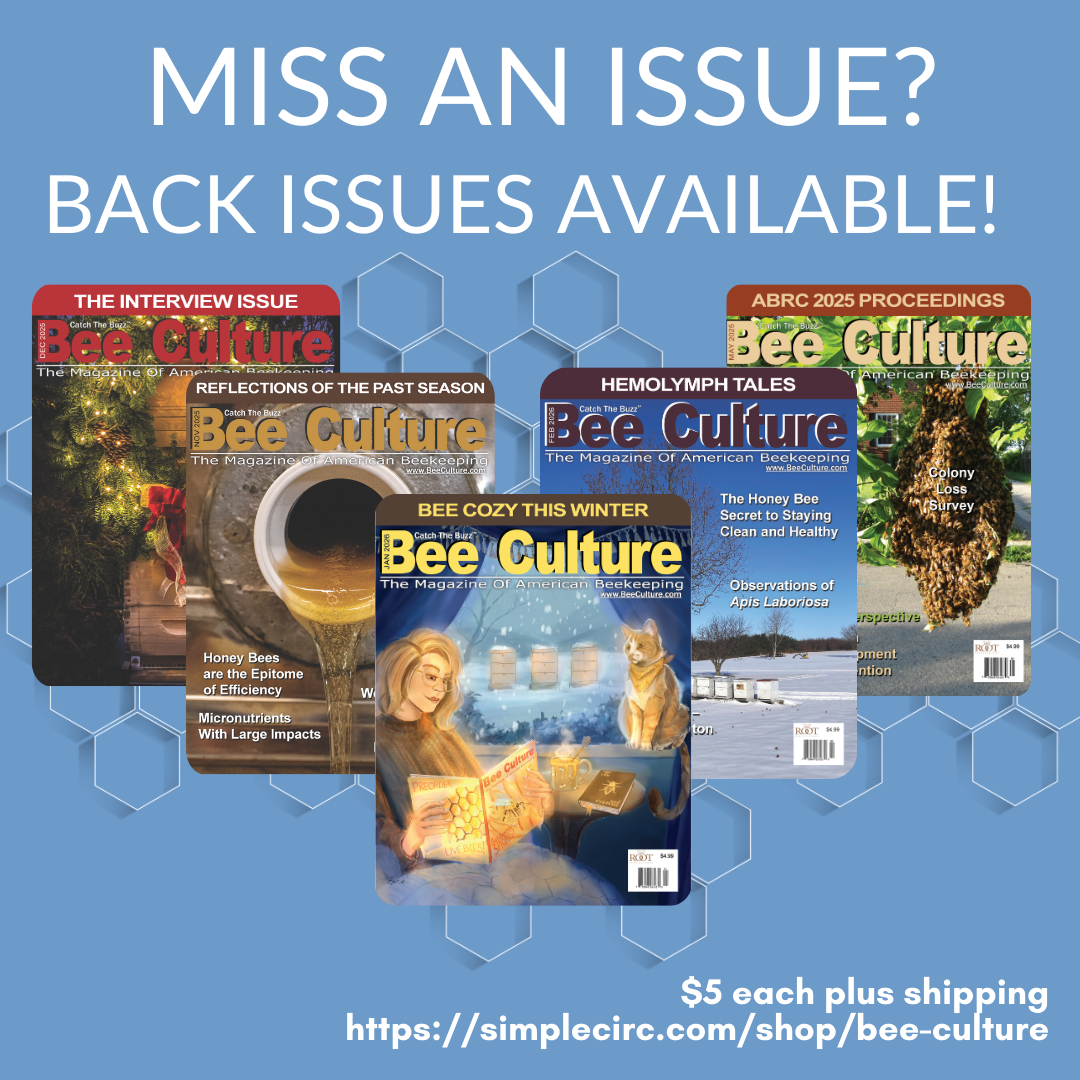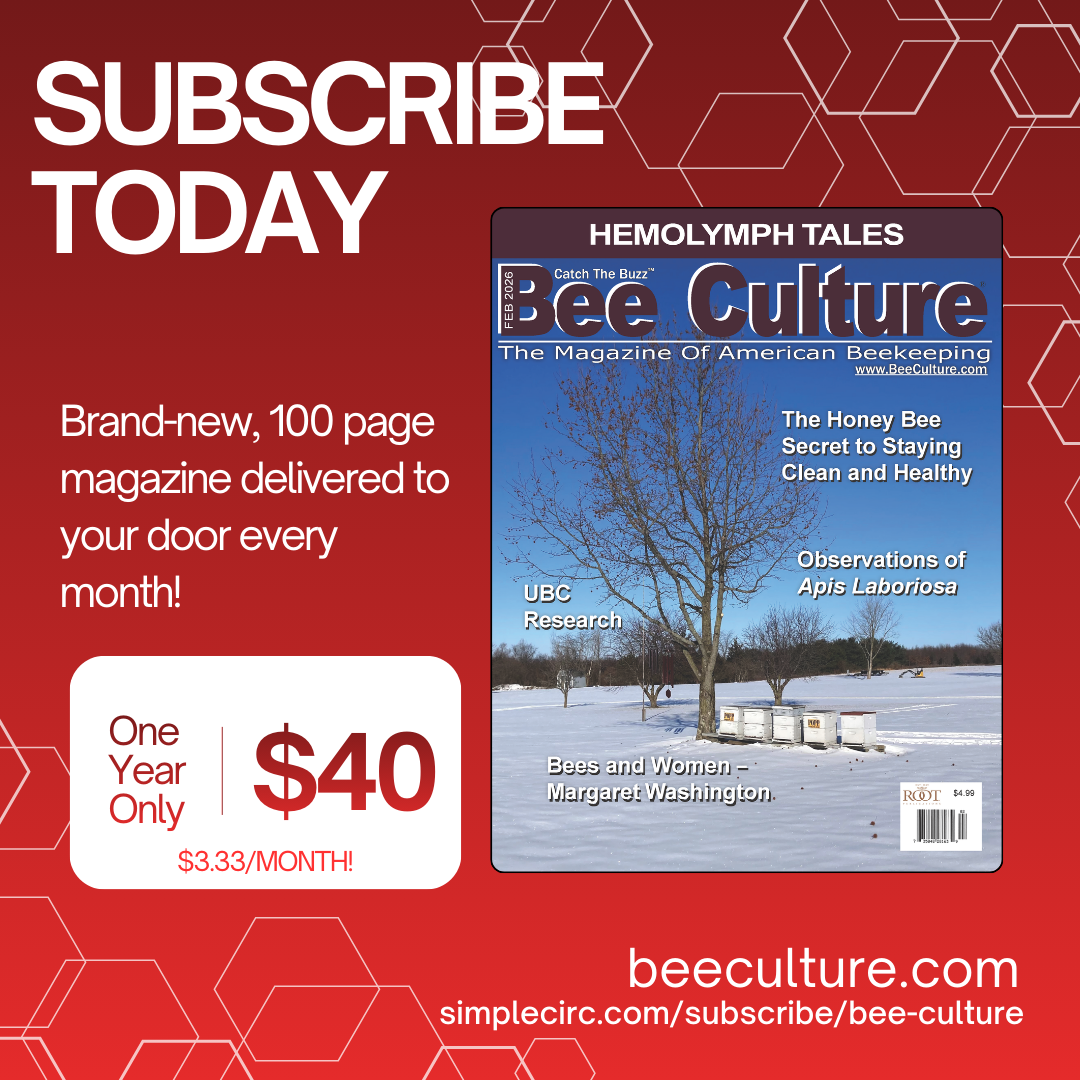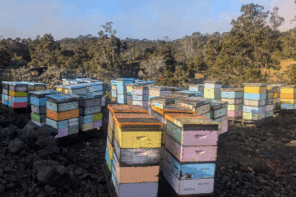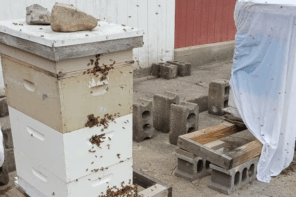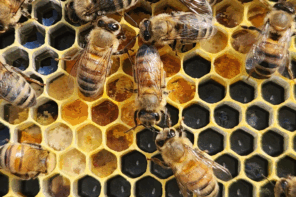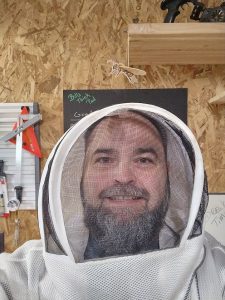 By: Bill Lallman
By: Bill Lallman
My Name is Bill and I am a first year beekeeper from the mid-Ohio region. When I was asked a few months ago to consider writing an article about my journey as a new beekeeper, I was very excited and jumped head first into typing. At the time, I was taking a course through Michigan State University, talking to and learning from the members of our area beekeepers association, and from the speakers that the association brought in to speak at our meetings. I’ve also read many books about beekeeping and queen rearing. Then, I realized I was no longer right in the middle of my first year of beekeeping and now, it is November, and I have the better part of my first season under my veil to write about and oh boy what a wonderful journey I have started.
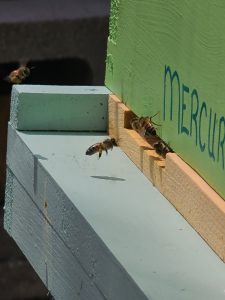 I asked Mr. Hayes for some advice on writing this article and he told me basically to write like I was telling my story; how I discovered honey bees, how my interest and passion grew, how I found out about Michigan State University’s “Heroes to Hives” program, what I want to know and learn about honey bees and beekeeping. With that advice I hope to inspire passion in new beekeepers and reignite the passion in experienced beekeepers. I realize I have a lot to learn about beekeeping, honey bees and pollinators in general. I also realize that I should always “BEE” learning, no matter how long I am keeping bees. With all that said, I have a lot to say, so let us get into it.
I asked Mr. Hayes for some advice on writing this article and he told me basically to write like I was telling my story; how I discovered honey bees, how my interest and passion grew, how I found out about Michigan State University’s “Heroes to Hives” program, what I want to know and learn about honey bees and beekeeping. With that advice I hope to inspire passion in new beekeepers and reignite the passion in experienced beekeepers. I realize I have a lot to learn about beekeeping, honey bees and pollinators in general. I also realize that I should always “BEE” learning, no matter how long I am keeping bees. With all that said, I have a lot to say, so let us get into it.
I was raised to have a healthy respect and curiosity for nature, so I was always somewhat aware of the importance of honey bees. It wasn’t until I developed a passion for cooking on a smoker and using honey in my recipes, did I even think about keeping bees. I was using 60 pounds of honey a year cooking, so why not keep bees and harvest my own honey? It was my first internet search about beekeeping that ignited an interest, which rapidly became a passion for honey bees. I am cautious about information from the internet, so I reached out to an old golfing buddy of mine whose wife (Pam) is a beekeeper and she gave me the best advice that any aspiring beekeeper should receive. Pam said, “Join the local beekeeping association and take the beginner beekeeping course they offer.” The course was around $60 bucks and included the course, the book Beekeeping For Dummies 5th Edition, a veil, a hive tool, information from the Honey Bee Health Coalition and a year’s membership to both my local and state associations. Well, I am no dummy so I jumped on it. Now let me tell ya, I didn’t expect much out of a For Dummies book, but it did not take long for me to realize the wealth of information in that book. I hate to admit it, but I haven’t read very many books cover to cover since I have been out of school. That book however, I read cover to cover in a weekend. That book gave me my first glimpse into how absolutely awesome and amazing honey bees are. I amazed my friends and family with all sorts of information about honey bees. I had to pass on some of the coolest information I have ever heard. I mean the queen can decide whether the egg she is laying is going to be a male or female, isn’t that amazing? How about the waggle dance, the caste system the workers go through, the way the queen only mates a few times at the beginning of her reign but can lay eggs for a few years? I mean most of you reading this probably know all this stuff, but you have to admit it is still amazing.
So after the beginner beekeeper course and the Dummies book, I craved more information. I subscribed to Bee Culture, and started reading what books I found on the subject. A few of the books I read and liked are: Building Beehives For Dummies, Hive Management: A Seasonal Guide to Beekeeping by Richard E. Bonney and Splitting Hives & Rearing Queens by Joseph E Hebert, PhD. In my quest for information, I searched the internet and joined a couple beekeeping social media groups.
Then, one day while playing around on my computer, an ad for “Heroes To Hives”, an educational beekeeping course “free” to Veterans offered by Michigan State University, caught my eye. After doing a little research about the program, I signed up. For a free course I didn’t expect to get much out of it but I was surprised again. The course is a nine module course that is meant to take about nine months to complete. I took the online version of the course which was self paced so I took my time and learned a lot. The Heroes To Hives course provided me with a wide range of information I have been craving. The more I learn about honey bees and what makes them tick, the better beekeeper I can be, right?
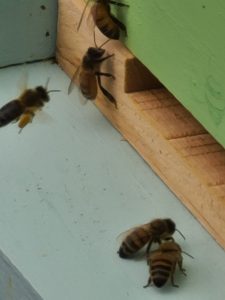
Another great source of information came from a few of the guest speakers at our association meetings. The speaker that made the biggest impact on my journey so far is none other than Bee Culture’s own, Jerry Hayes. Jerry gave a lecture on the varroa mite, yeah those pesky little things. Jerry’s informative presentation includes a varroa mite replica to demonstrate how big a varroa mite would be if we were honey bees. Then, Jerry used that mite and his button down shirt to show us how the mite gets to the honey bee’s fat body. I had not heard of the Varroa destructor before I started my journey to become a beekeeper and that is probably pretty normal. Mr. Hayes’ presentation really helped me better understand the behavior of the varroa mite, which in turn helps me better understand how to help my honey bees.
This first year of my journey has been filled with learning. I can hardly believe how much I have learned already and how much more there is to learn. It took me 50 years to figure out what I want to be when I grow up, and now that I figured it out, I am obsessed. Honey bees are absolutely amazing, as is everything in nature, but with honey bees I get to be a part of their world, up close and personal and I can be an active part in helping our pollinators survive. You’ve heard the term, “There are beekeepers and there are bee-havers,” well, I want to be a beekeeper. To me, being a beekeeper means active hive management and varroa control. Mr. Hayes stressed it, and Heroes to Hives emphasized it in almost every lesson; the most important thing you can do for your honey bees is proper varroa control. Follow the guides and recommendations of the Honey Bee Health Coalition and always be willing to learn.
The next chapter of my journey is bound to be full of fun, exciting and solemn moments. I am going to be more active with the Richland Area Beekeepers Association because there is a lot of experience to learn from. No matter how much education from schools, books, lectures and seminars I accumulate, it is the experience that I lack. I am going to try to find some beekeepers that will let me tag along during their inspections so I can watch and pick their brains for whatever honey bee information I can get. I am going to become a “Certified Pollinator Champion”, through another course available at Michigan State University. I would like to continue updating you on my journey. I also would love to try to introduce honey bees to as many people as I can and let them know how important they are to everyone. It is a new year now and I am buzzing on to chapter two of my journey. Bee well, bee kind and bee humble.




